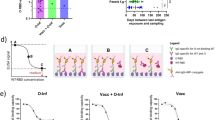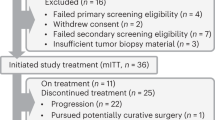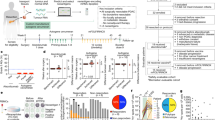Abstract
Herpes simplex type 2-defective infectious single-cycle (DISC) viruses are attenuated viruses that were originally produced as viral vaccines; however, these viruses are also efficient gene transfer vehicles. The main goals of this study were to examine determinants of the gene transfer by using DISC virus for squamous cancer and to evaluate the antitumoral efficacy of vaccination with tumor cells modified by DISC viruses carrying a combination of immunomodulatory genes (interleukin-2 (IL-2), granulocyte-macrophage colony-stimulating factor (GM-CSF), B7-1) in a model of squamous cell cancer (SCCVII) in C3H/HeJ mice. SCCVII cells transduced by DISC viruses (multiplicity of infection of 10) carrying the IL-2 or GM-CSF gene produced nanogram quantities of IL-2 or GM-CSF per 106 cells. Irradiated (5,000 cGy, 10,000 cGy) cells secreted levels of GM-CSF or IL-2 that were comparable with nonirradiated cells. In vivo vaccination using tumor cells transduced ex vivo with DISC-IL2 or DISC-GMCSF resulted in protection against subsequent tumor challenge (P < .01), with DISC-GMCSF-transduced, irradiated tumor cells showing the greatest effects (P < .001). Marked growth arrest also was noted in established tumors after direct injection of DISC-GMCSF (P < .001). These data demonstrate that (a) DISC virus is capable of efficient gene transfer, (b) GM-CSF-secreting genetically modified tumor vaccine protects against tumor cell challenge and suppresses tumor growth, and (c) intratumoral injection of DISC-GMCSF significantly suppresses the growth of established tumors. These results not only confirm clinically relevant gene transfer but also demonstrate that the gene transfer is an effective anti-cancer therapy.
This is a preview of subscription content, access via your institution
Access options
Subscribe to this journal
Receive 12 print issues and online access
$259.00 per year
only $21.58 per issue
Buy this article
- Purchase on Springer Link
- Instant access to full article PDF
Prices may be subject to local taxes which are calculated during checkout
Similar content being viewed by others
Author information
Authors and Affiliations
Corresponding author
Rights and permissions
About this article
Cite this article
Kim, SH., Carew, J., Kooby, D. et al. Combination gene therapy using multiple immunomodulatory genes transferred by a defective infectious single-cycle herpes virus in squamous cell cancer. Cancer Gene Ther 7, 1279–1285 (2000). https://doi.org/10.1038/sj.cgt.7700231
Received:
Accepted:
Published:
Issue Date:
DOI: https://doi.org/10.1038/sj.cgt.7700231
Keywords
This article is cited by
-
Herpes simplex virus 1 (HSV-1) for cancer treatment
Cancer Gene Therapy (2006)



